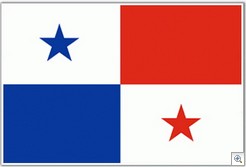 Panama has had a national lottery and casino gambling during most of its history as a nation. The Republic of Panama gained its independent status in 1903 following a separatist revolution from Colombia, which was supported by the United States. The US then negotiated for rights to dig the Panama Canal and control its operations. A Canal Zone area was put under the American flag, and U.S. military bases were located in the zone. The U.S. presence as well as canal activities has brought people from all over the world to Panama, and the country looked to these people to support casino activities. The lottery, however, has been marketed to local residents, and it has served a social welfare function – first, by giving jobs to many persons who sell tickets and administer operations, and second, by dedicating its profits to programs to help the poor.
Panama has had a national lottery and casino gambling during most of its history as a nation. The Republic of Panama gained its independent status in 1903 following a separatist revolution from Colombia, which was supported by the United States. The US then negotiated for rights to dig the Panama Canal and control its operations. A Canal Zone area was put under the American flag, and U.S. military bases were located in the zone. The U.S. presence as well as canal activities has brought people from all over the world to Panama, and the country looked to these people to support casino activities. The lottery, however, has been marketed to local residents, and it has served a social welfare function – first, by giving jobs to many persons who sell tickets and administer operations, and second, by dedicating its profits to programs to help the poor.
The U.S. military left the Canal Zone and invaded the governmental center in Panama City in 1989 in order to capture Pres. Manual Noriega because of his involvement in the drug trade. That invasion involved a major firefight and the loss of hundreds of lives. Along with the invasion, the United States imposed an embargo on Panama. The hostile policies had the effect of killing any tourist-type activity for many years. On 1 January 2000, the US gave up control over the operations of the Panama Canal and by that time had withdrawn almost all its military from Panama. The withdrawal removed much of the market that had existed for casino gaming in the earlier years. Panama has readjusted with new government initiatives for redeveloping a new tourism opportunities. Casino gaming has returned to the tourist package, and the government has authorized new casinos with private ownership.
The first casinos in Panama were also under private control. Several gaming rooms were opened in the Old Balboa Gardens region of Panama City. They offered dice, roulette, and blackjack games. In the early 1940s, several gaming establishments came to the Plaza Cinco de Mayo in Panama City and to the city of Colon, where the canal meets the Caribbean Sea. After a government change in 1945, all casinos were placed under central ownership of three Panamanians who won a government concession for the activity. In the early 1950s the government permitted several casino gaming activities to be held for the benefit of the Red Cross and other charities. The private and charity gaming ventures came to an end in 1956 when the national government took over the casinos.
A national casino administration was established within the Ministry of Finance and Treasury. Its goal was to enhance tourism and to generate greater revenue from tourists as well as from Americans stationed in Panama and other businesspersons coming to the country. The national policy was directed at the placement of casinos in hotels. In the late 1950s casino activity began in the El Panama, Continental, Granada, and Siesta hotels. In 1965 a new national law reorganized the casinos, permitting their location in hotels located in cities over 200,000 population with a capital value of $1.5 million. The law also authorized slot machine–only casinos in other locations. At the time of the U.S. invasion, the government operated ten full-scale casinos in six Panama City hotels, two in Colon hotels, and one each in the city of David and on Contradora Island (which was exempt from the population requirement). Six Panama City hotels had slot machine–only casinos as did three shopping centers, three airport locations, a bar, bowling alley, and five smaller cities. The full casinos offered blackjack, roulette, craps, and poker games, as well as slot machines.
According to my interview with gaming board officials in Panama City on 27 December 1998, in 1997 the government shifted its policies, realizing that its casino administration did not have the resources to fully develop the industry for tourism. Privatization was authorized. Bids were accepted from thirteen prequalified companies to run the casinos. Three companies were granted licenses to run casinos for twenty years. At that time licenses may be renewed. The casino facilities must be located in new five-star (and old four-star) hotels that have 300 rooms. The facilities may be open twenty-four hours a day. They must have security cameras, and new slot machines must be centrally linked together on computer systems. The casinos must advertise the tourist aspects of their facilities. In addition to annual licensing fees, the casinos pay a tax equaling 20% of their win. Slot machine–only casinos pay a tax of 25%.
Today, Crown Casinos runs casinos at the Granada, Continental (slot machines only), and Caesars Park hotels in Panama City. The Thunderbird, a Vancouver, British Columbia–based company, has casinos at the El Panama and Solon hotels in Panama City, as well as the Washington hotels in Colon and David. A third corporation runs separate slot machine parlors and has slot machines in the Panama City airport.
|
|